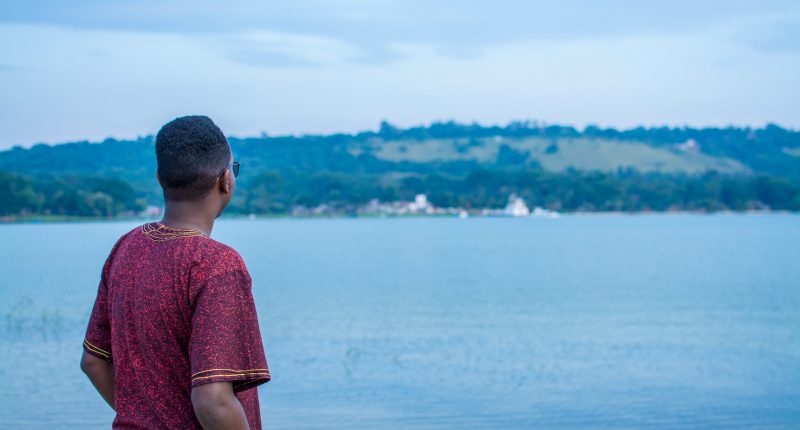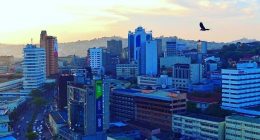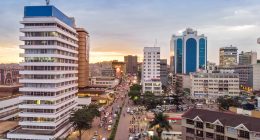Editor’s note: this article is part of the “Covid-19 Reset” project, where the LéO Africa Institute is asking its fellows and associates to imagine a new, progressive post-covid world for our respective communities and countries.
***
The world is experiencing huge uncertainties in light of the coronavirus pandemic that has caused huge devastation to societies and economies alike. The coronavirus tops the current major global threat against humanity. It is the greatest threat that faced the human race equally, and at the same time, in human history. The crisis has tested the soul of this Generation (GenZ). In weeks, the pandemic shut down the global economy, disrupted global trade and movement, widened existing inequalities, resulted in a global leadership crisis, and weakened the social contract and its structures. Although Covid-19 came with unexpected and unprecedented challenges, the world had failed to observe deteriorating alarms by a few public figures including the billionaire philanthropist, Bill Gates, who is keen on Global Health and development.
Previous global health crises, such as the SARS, Ebola, or Zika did not leave much of an imprint on the world as the case has been for coronavirus. This includes the unprecedented collaboration of the global scientific community, innovations in affordable testing and treatments, all aimed at producing a vaccine to fight COVID-19 and control further spread of the disease.
The pandemic has also accelerated the adoption of Fourth Industrial Revolution technologies, which could lead to a healthier and prosperous world. For instance, The Korea Centers for Disease Control and Prevention (KCDC) adopted a mobile app, AI-enabled chatbots, and phone calls to identify, report, and share all information of nearby testing locations. This contributed to the success of South Korea’s fight against COVID-19. Also, in Rwanda, Robots were deployed to carry out temperature checks, check for vitals, and keep medical records of COVID-19 patients. Leveraging the Fourth Industrial Revolution technologies in the fight against the Covid-19 will allow us to achieve greater preparedness for future pandemics and hopefully push us towards a safer and healthier world.
Although the coronavirus has come at a critical moment, it has offered the world four significant leadership lessons to resolve such crises or even worse threats in the future.
First, we need more collaborative and inclusive leadership both at the national and the global level. The pandemic taught us how we can either resist or reset the world through inclusivity and collaboration rather than isolation. Public sectors will only be able to bounce back from the pandemic stronger and faster if they harness partnerships with the private sector, civil society, scientists, faith-based organizations and more importantly, young people. For instance, In Somalia, a national task force was constituted and led by Prime Minister HE Hassan Ali Kheyre which brought together all the leaders from different sectors. This was a tremendous step towards synergizing the resources and strategies available to fight the coronavirus. With this task force, Somalia successfully managed and beat the misinformation and misconceptions about the coronavirus pandemic.
Second, the world needs to build a new social contract. In this post-crisis moment, countries and people should come together and draw a new blueprint for global order and systems. The coronavirus shook our global system and proved that change is inevitable if we are to avoid social unrest caused by the widening inequalities and future health and biological crises. To avoid a great reversal for the global development trajectory, the world should adopt the agenda of “reset” as the starting point to our recovery.
Third, we need smart investment in Science, Technology and Innovation. Governments and people need to work on resetting and recovering their economies by filling the investment gap in digital infrastructure to adapt to the new realities of limited physical contact. During the pandemic, debate on the future of work has come sooner than expected, with both unprecedented challenges and opportunities. For the past weeks, we have experienced a growing number of online classes, virtual meetings among leaders, and courts holding digital hearings. This might create a digital gap between people and countries; therefore, shirking the digital divide is inevitable to keep the economic recovery and growth facing upwards.
Fourth, the world should work towards the restoration of our shared global biodiversity. The majority of deadly diseases have originated from animals. These include the SARS, bird flu, Swine Flu, MERS, Zika, Ebola and more recently COVID-19. This is telling enough of the devastating relationship between humans and our environment. The pandemic has reminded the world that human health and biodiversity are interlinked and interdependent therefore, humans should protect and preserve the environment for a better and healthier world.
Finally, the people of the world and governments should make a rational choice towards the path of global solidarity, recovery, and green growth. In this crisis, everyone has a role to play.
Mohamed Okash is a Young and Emerging Leaders Project (YELP) Fellow from the Class of 2019. He is also the 2019 Recipient of the Magnus Mchunguzi Certificate for Outstanding Leadership by a Fellow.









